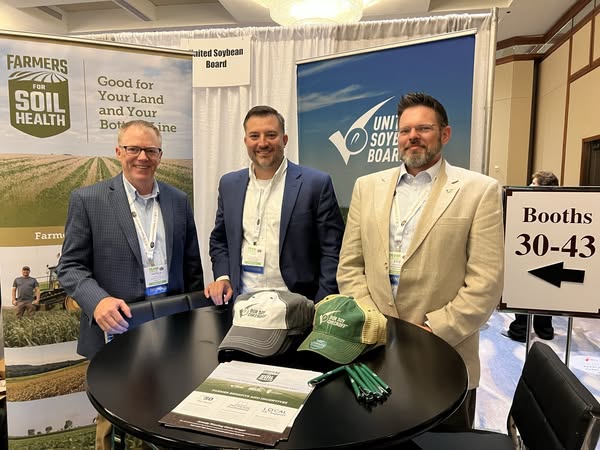
Oklahoma Farm Report’s Maci Carter caught up with Missouri farmer Kyle Durham of the United Soybean Board (USB) to talk about the 2024 soybean crop.
Durham’s farm is about an hour east of Kansas City along the Missouri River. He said that although it was an unusual year for soybean farmers, his area received the right amount of rain at the right times.
“We had a planting window that opened up early and allowed us to get some seeds in the ground earlier than normal,” he said. “Those acres turned out well. That earlier planting date really did pay off.”
He added that, remarkably, the soil type of his fields made no difference in the success of the crops they grew this year.
Durham said that large carryout numbers were the biggest issue of the year because the role of the United Soybean Board is to find markets for all of the soybeans.
“We take a two-pronged approach,” he said. “We look both at the supply of soybeans in the United States and the demand for soybeans.”
He serves on an Innovation and Technology Supply team that has been investing in methods, technologies, and innovations that allow for quicker market access for traits and other technologies. “So, we aren’t necessarily developing the new trait that will be in your next soybean, but we are doing the basic and background research that allows our breeders across the country to bring those to market a lot quicker,” he said.
Challenges to soybeans vary from climate to pest to fungi, and more, so the heart of the research is to build maximum resiliency in the plant. Projects include goals of identifying the gene combination to produce deeper taproots, sequestering carbon in the soil, and managing the effects of drought and flooding on the crop.
The work of the Soybean Checkoff, which most people are familiar with, is driven by the need to find new ways to use soybeans. “For the past thirty years, the checkoff has brought to market more than a thousand commercially available soybean products,” Durham said. “One of the first ones was soy ink for newspapers. Then biofuels. Soybeans make such a great drop-in replacement for things like petroleum, plastics, PFAs, forever chemicals, and even formaldehyde in plywood. We focus on sustainable soy solutions at USB.”
Replacing these items with soybean products adds value for consumers by promising cleaner air, better soil, and water. It strengthens communities as new-use factories start up in rural areas to be nearer to the soybean fields, thus creating more jobs for the inhabitants.

















